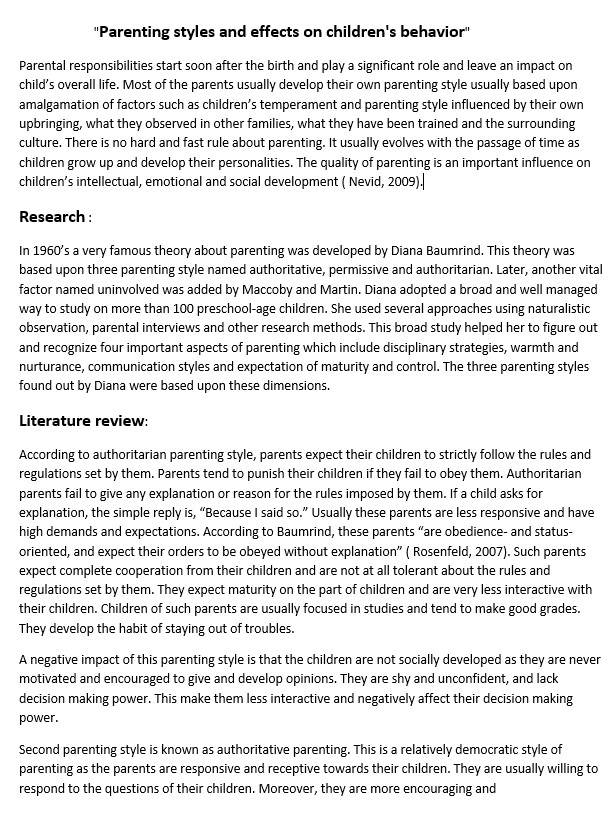Understanding Parenting Styles and Their Effects (Grade A+)
Summary:
This text explores different parenting styles and their effects on children’s behaviour. Parenting styles are developed based on various factors, including the parent’s own upbringing, cultural influences, and observations from other families. Diana Baumrind’s theory in the 1960s identified three parenting styles: authoritative, permissive, and authoritarian, with an additional style named uninvolved, later added by Maccoby and Martin.
Authoritarian parenting is characterized by strict rules and punishments without explanations. These parents have high expectations and limited responsiveness. While children of authoritarian parents may excel academically, they may lack social development, confidence, and decision-making skills due to a lack of encouragement to express opinions.
Authoritative parenting, on the other hand, is characterized by responsiveness, communication, and encouragement. These parents set expectations but are also forgiving and responsive to their children’s questions. This style positively affects children’s overall development, including self-sufficiency, effective peer interaction, and wise decision-making skills.
The text also highlights the influence of a child’s behaviour on the parenting style parents adopt. Additionally, it discusses how ethnicity and cultural factors can shape parenting styles, with authoritative parenting being more prevalent among white families and authoritarian parenting more common among ethnic minority families.
Excerpt:
Understanding Parenting Styles and Their Effects
“Parenting styles and effects on children’s behaviour”
Parental responsibilities start soon after birth and play a significant role and impact a child’s overall life. Most parents usually develop their own parenting style based upon an amalgamation of factors such as children’s temperament and parenting style influenced by their own upbringing, what they observed in other families, what they have been trained and the surrounding culture. There is no hard and fast rule about parenting. It usually evolves with the passage of time as children grow up and develop their personalities. The quality of parenting is an important influence on children’s intellectual, emotional and social development ( Nevid, 2009).
Research :
In the 1960s, a very famous theory about parenting was developed by Diana Baumrind. This theory was based on three parenting style named authoritative, permissive and authoritarian. Later, another vital factor named uninvolved was added by Maccoby and Martin. Diana adopted a broad and well-managed way to study more than 100 preschool-age children.


Reviews